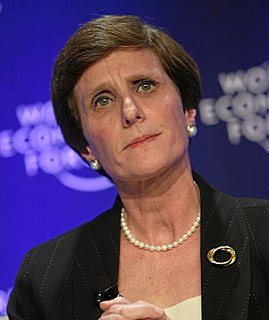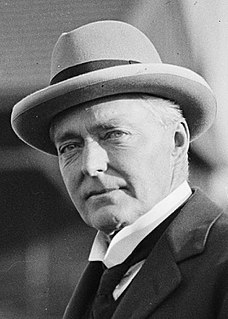A Quote by Lewis H. Lapham
Since the eighteenth century the immense expansion of the worlds wealth has come about as a result of a correspondingly immense expansion of credit, which in turn has demanded increasingly stupendous suspensions of disbelief.
Related Quotes
To combat depression by a forced credit expansion is to attempt to cure the evil by the very means which brought it about; because we are suffering from a misdirection of production, we want to create further misdirection -- a procedure which can only lead to a much more severe crisis as soon as the credit expansion comes to an end.
England was nothing, compared to continental nations until she had become commercial... until about the middle of the last century, when a number of ingenious and inventive men, without apparent relation to each other, arose in various parts of the kingdom, succeeded in giving an immense impulse to all the branches of the national industry; the result of which has been a harvest of wealth and prosperity, perhaps without a parallel in the history of the world.
Sometimes I wonder how much of these debates have to do with the desire, the legitimate desire, for that history to be recognized. Because there is a psychic power to the recognition that is not satisfied with a universal program, it's not satisfied by the Affordable Care Act, or an expansion of Pell grants, or an expansion of the earned-income tax credit.
Unfortunately, once an economy is geared to expansion, the means rapidly turn into an end and "the going becomes the goal." Even more unfortunately, the industries that are favored by such expansion must, to maintain their output, be devoted to goods that are readily consumable either by their nature, or because they are so shoddily fabricated that they must soon be replaced. By fashion and built-in obsolescence the economies of machine production, instead of producing leisure and durable wealth, are duly cancelled out by the mandatory consumption on an even larger scale.
When I was director of the CIA, I knew that we had been - and I'm choosing my words very carefully here - effective in our expansion. We really had - expansion of government agencies and expansion of use of contractors. Effective, we were; efficient, we weren't. And so, as director of the CIA, I went after the inefficiencies part.

































